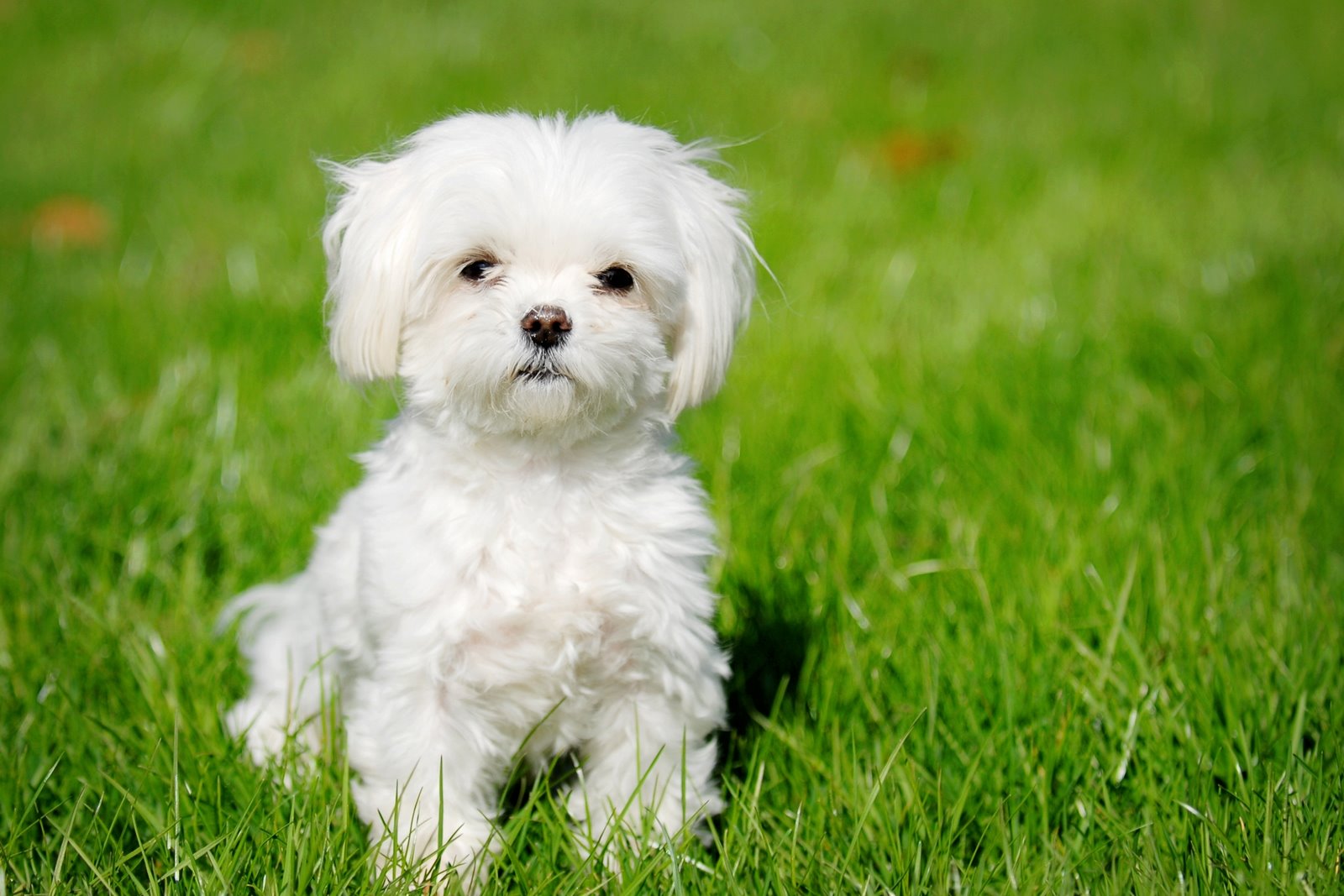1.Overview
Maltese:
Gentle, affectionate and fearless, Maltese is a small breed of dog in toy group. Covered with a blanket of silky, long and white hairs, the dog loves to be with his people. Maltese is also a good competitor in dog sports such as obedience, rally, agility, tracking etc.
Poodle:
Originally a water retriever, poodle is skillful in various dog sports such as tracking, obedience, agility and herding. Poodle, as a whole, is a group of Standard Poodle, Miniature Poodle and Toy Poodle. Poodles have also been awarded with top honor in various conformation shows.
2.Appearance:
Maltese:
Maltese has a maximum weight of 7 pounds at maturity. Maltese weighing less than 4 pounds are supposed to have genetic disorders and are at a higher risk of health problems. Maltese has a deep chest and a compact and fine-boned body. Height of poodles ranges from 8-10 inches in males and 8-9 inches in females. Maltese have a long and silky coat of white color.
Poodle:
Mature poodles have a minimum weight of 5 pounds and maximum of 10 pounds. They can have a coat of black, blue, brown, gray, red, silver, white or yellow. These are high maintenance dogs when it comes to grooming. Poodles have a squarely built and well proportioned body. They can have a corded, dense, harsh and rough coat.
3.Temperament:
Maltese :
Maltese loves to be with people and can be trained easily. Temperament of Maltese is affected by a variety of reasons including socialization, heredity and training. Generally, Maltese are:
- Social
- Affectionate
- Playful
- Alert
- Cheerful
- Loving
- Gentle
- Intelligent
- Lively
Poodles :
Poodles are intelligent, loyal, mischievous and loving dogs. Poodles are highly trainable and have the following personality traits:
- Playful
- Alert
- Loyal
- Cheerful
- Responsive
- Intelligent
- Lively
Dogs of both the breeds bark frequently, and are good with children.
4.Health:
Like all the dog breeds, Maltese and Poodle both are prone to certain health problems. Both the breeds are hypoallergenic. When healthy, both the dogs have a minimum life expectancy of 12 years and maximum life expectancy of 15 years.
Maltese:
Maltese are generally healthy, and are not prone to major health problems. However, when you are planning to buy a Maltese, get clearance for following health concerns from:
- Hip dysplasia
- Elbow dysplasia
- Hypothyroidism
- Von Willebrand's disease
- Patellar luxation
- Portosystemic liver shunt
- Progressive Retinal Atrophy (PRA)
- Hypoglycemia
- White Dog Shaker Syndrome
- Collapsed trachea
- Reverse sneezing
- Distichiasis
- Entropion
- Hydrocephalus
- Open fontanel
Deafness and white shaker dog syndrome are occasionally seen in this breed. Before buying a Maltese, it is recommended to get the test of eyes and knees.
Poodles:
Poodles may have the following major health concerns:
- Epilepsy
- Legg-Calvés-Perthes
- Patellar Luxation
- Progressive Retinal Atrophy (PRA)
- Addison’s disease
The breed is also prone to minor health concerns such as cataracts, entropion, bloats, lacrimal duct atresia and trichiasis while intervertebral disc degeneration and urolithiasis can be occasionally observed in Poodles. Eyes, hips and knee tests are recommended before buying a dog of this breed.
5.Care:
Maltese:
Maltese love to go on a walk outside or engaging themselves in some sort of physical activities or games. They can be easily kept in shape because of their athletic nature. Generally, it is not advised to take Maltese on long walks before 8 months as bones of the puppy are weak at that time. Since, Maltese are housedogs, they can bear extreme heat and cold.
Maltese need daily brushing and occasional grooming so that mats are not developed in their coat.
Poodle:
Poodles can be comfortable at any place provided they are getting enough exercise and human company. Poodles prefer to stay indoors. Owing to their intelligence, Poodles can learn anything so quickly. Miniature, standard and toy poodles should be given proper training and socialization; otherwise they can learn destructive behavior. They are keen runners and swimmers.
Poodles require regular professional grooming.
6.Feeding:
Maltese:
Generally, the amount of food which should be given to Maltese depends on his age, activity level and metabolism. On a rough note, Maltese should be provided ¼ to ½ cup of high quality balanced dry food in a day. This amount of food can be divided into two meals. Good nutrition is necessary for Maltese from their puppyhood to their senior years to stay disease free and healthy. Don’t leave food all the time to the dog otherwise he will get fat.
Poodle:
Standard poodles require 3/2 to 3 cups of high quality dry food per day while miniature poodle should be fed ¾ to 1 cup on daily basis. Feeding requirement of toy poodle is less and varies from ¼ to ½ cups of balanced food. Like all other dogs, poodles can easily gain weight if you will not keep a check on their food. Food of poodles should consist of all the nutrients including protein, carbohydrates, healthy fats, and essential vitamins and minerals.


